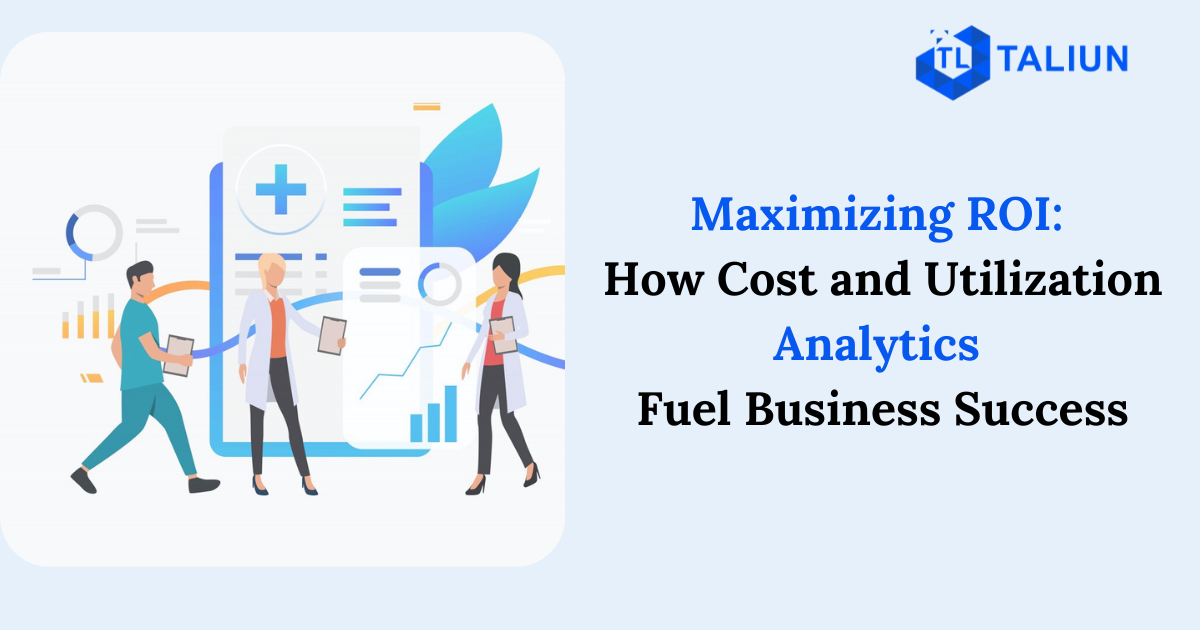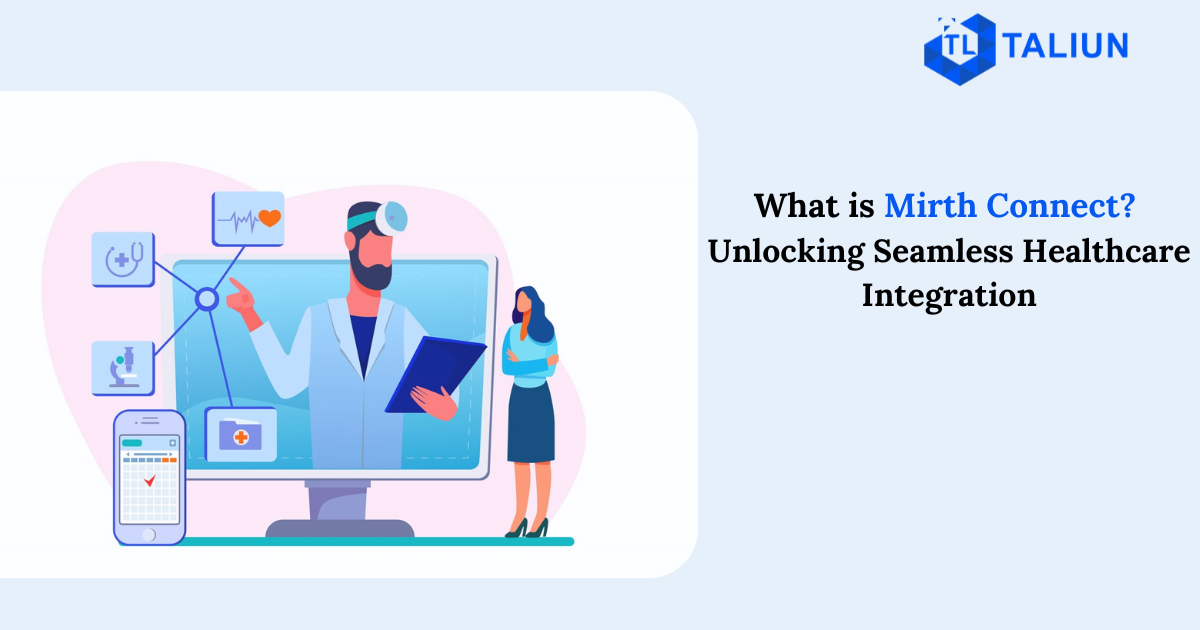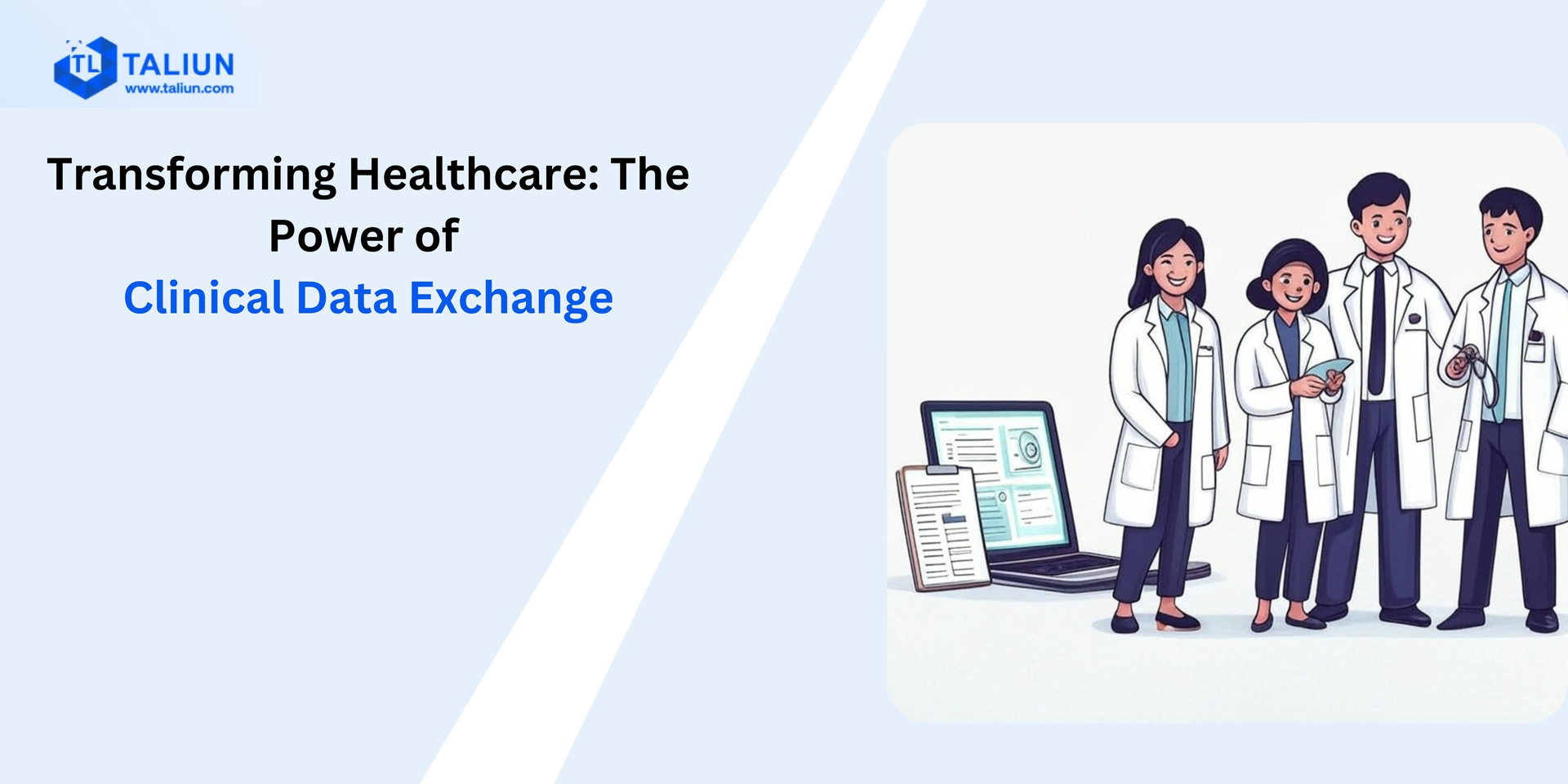Data-Driven Care: How Analytics Can Help Rural Hospitals Meet Quality Standards

Rural hospitals are the backbone of many small communities, providing essential healthcare services to people who might not have access to anything else. But running a rural hospital isn’t easy. They face challenges like limited resources, smaller patient populations, and geographic isolation, all of which make it tough to meet the growing demands of modern healthcare. With healthcare regulations becoming more complex, the pressure to deliver high-quality care is only increasing.
That’s where
healthcare data analytics comes in. By harnessing the power of data, rural hospitals can navigate these challenges more effectively. Not only can data analytics help them meet quality standards, but it can also enable them to improve patient care, streamline operations, and even save money.
The Unique Challenges of Rural Healthcare
Rural hospitals often serve as the only healthcare access point for their communities. For many people, they’re the lifeline to medical services, which makes their role crucial. But these hospitals face some tough obstacles:
- Smaller patient populations: This makes it harder to keep up with other healthcare facilities that have more patients and resources.
- Limited financial resources: Many rural hospitals operate on tight budgets, making it difficult to invest in new technologies or hire additional staff.
- Recruitment issues: Attracting healthcare professionals to remote areas can be a challenge.
- Complex healthcare regulations: With requirements from organizations like the Centers for Medicare & Medicaid Services (CMS), it’s tough to keep up with all the reporting and quality standards.
Despite these challenges, rural hospitals are committed to providing the best possible care. But how can they meet the growing demands of quality standards without stretching their already limited resources? Data analytics can help.
How Data Analytics Can Help
Data analytics is more than just a fancy term—it’s a powerful tool that can help rural hospitals deliver better care and operate more efficiently. Here are some of the key ways analytics can make a difference:
- Identify high-risk patients: Predict which patients are at greater risk for complications or readmissions.
- Target interventions: Develop personalized care plans for patients at high risk, helping them avoid hospitalization or worsening health.
- Optimize preventive care: Focus on preventative measures for patients who might be at risk of developing chronic conditions.
For example, by using predictive analytics, a hospital might identify diabetic patients who are at higher risk of complications. With this data, the hospital can reach out to those patients to help them manage their condition before it leads to hospitalization.
Streamlining Operations
Data analytics isn’t just about patient care—it can also improve hospital operations. Rural hospitals can use analytics to:
- Improve staff scheduling: Optimize staffing levels based on patient volume and historical data to ensure efficiency and prevent burnout.
- Manage wait times: Analyze when patients typically need care and adjust staffing and resources to reduce wait times.
- Predict supply needs: Predict the supplies and medications the hospital will need, so they’re always prepared without overstocking.
- Spot cost-saving opportunities: Use data to find areas where the hospital can cut costs without compromising care.
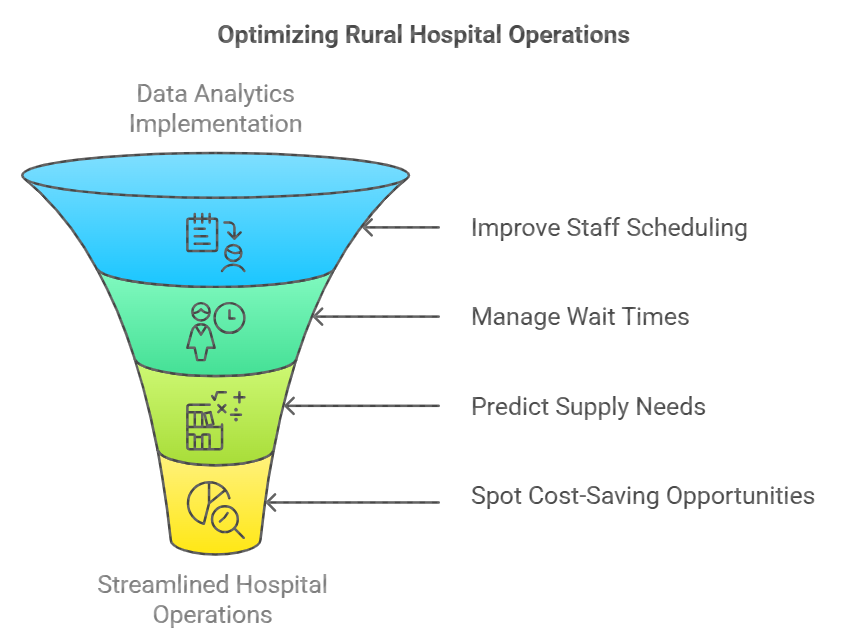
In a rural hospital with a small team, being efficient is critical. Analytics helps make every resource count.
Tracking Quality Metrics
One of the biggest hurdles for rural hospitals is keeping up with quality standards. But analytics can make it easier by:
- Tracking real-time performance: Monitor key metrics like patient satisfaction, safety protocols, and readmission rates.
- Automating regulatory reporting: Instead of spending hours gathering data, analytics can automate the reporting process for CMS and other regulatory bodies.
- Spotting areas for improvement: By constantly tracking performance, hospitals can identify small issues before they turn into bigger problems.
With analytics, rural hospitals can keep track of their performance, stay compliant, and continuously improve care quality.
Overcoming Barriers to Implementation
Despite the clear benefits, some rural hospitals hesitate to adopt data analytics due to concerns about cost and complexity. The good news is that modern analytics solutions are becoming more accessible:
- Cloud-based solutions: These are more affordable because they don’t require expensive infrastructure.
- Scalable tools: Analytics platforms can be tailored to the size and needs of the hospital, whether it’s a small critical access facility or a larger rural hospital.
- Training and support: Many vendors offer training and ongoing support, making it easier for staff to adopt new technology.
- Financial aid: There are grants and federal programs designed to help rural hospitals upgrade their technology.
These solutions make it easier for rural hospitals to implement data-driven care without the hefty price tag.
Real-World Success Stories
Several rural hospitals have already seen the positive impact of data-driven care. For example, a hospital in Montana reduced its readmission rates by 22% after implementing an analytics platform. By using data to identify high-risk patients and intervene early, they were able to improve patient outcomes and reduce unnecessary hospitalizations.
This is just one example, but it shows the real-world potential of data analytics in rural healthcare. It’s not just theory—it’s working in practice.
Remember: The Human Touch is Irreplaceable
Data and technology are incredible tools—they help us uncover insights and make better decisions. But they can never replace the care and compassion that healthcare professionals provide. It’s the human connection that brings understanding and comfort to patients.
The best outcomes happen when we combine the power of data with the empathy and expertise of caregivers. By balancing both, we ensure patients receive not just the right treatment, but also the kindness and support they need.
ICHRA: A Flexible Healthcare Solution for Rural Hospitals
Beyond leveraging data analytics, rural hospitals can explore innovative approaches like
Individual Coverage Health Reimbursement Arrangements (ICHRA). ICHRA enables employers to provide a fixed monthly allowance for employees, empowering them to purchase individual health insurance plans. This approach offers several benefits, making it particularly advantageous for rural hospitals:
- Greater Flexibility: Employees gain the ability to customize their health benefits to suit their unique needs.
- Cost Efficiency: ICHRA plans are often more affordable for employers compared to traditional group health plans.
- Boosted Talent Retention: Flexible insurance options help rural hospitals attract and retain skilled healthcare professionals.
- Personalized Coverage: Employees can select insurance plans that align with their specific healthcare requirements.
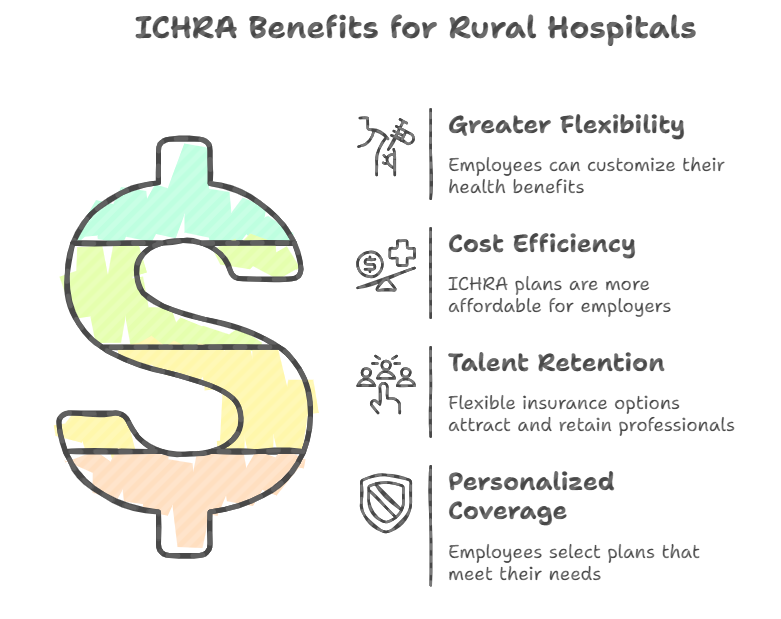
By integrating data-driven care strategies with flexible benefit solutions like ICHRA, rural hospitals can create a sustainable and employee-focused approach to healthcare—one that supports both the well-being of their staff and the quality of care for their patients.
Conclusion: A Path Toward Better Rural Healthcare
The integration of data analytics is more than a transformative shift—it's a lifeline for rural hospitals striving to thrive in the current healthcare landscape. By harnessing data-driven strategies, these institutions can not only enhance patient outcomes and streamline operations but also address critical challenges unique to rural healthcare. When paired with innovative solutions like ICHRA, rural hospitals are better equipped to attract top talent, manage costs effectively, and foster long-term sustainability.
At the heart of it all, rural hospitals are more than healthcare providers—they are pillars of their communities. Embracing these advancements ensures that they continue to serve as a source of care, hope, and strength for generations to come.

